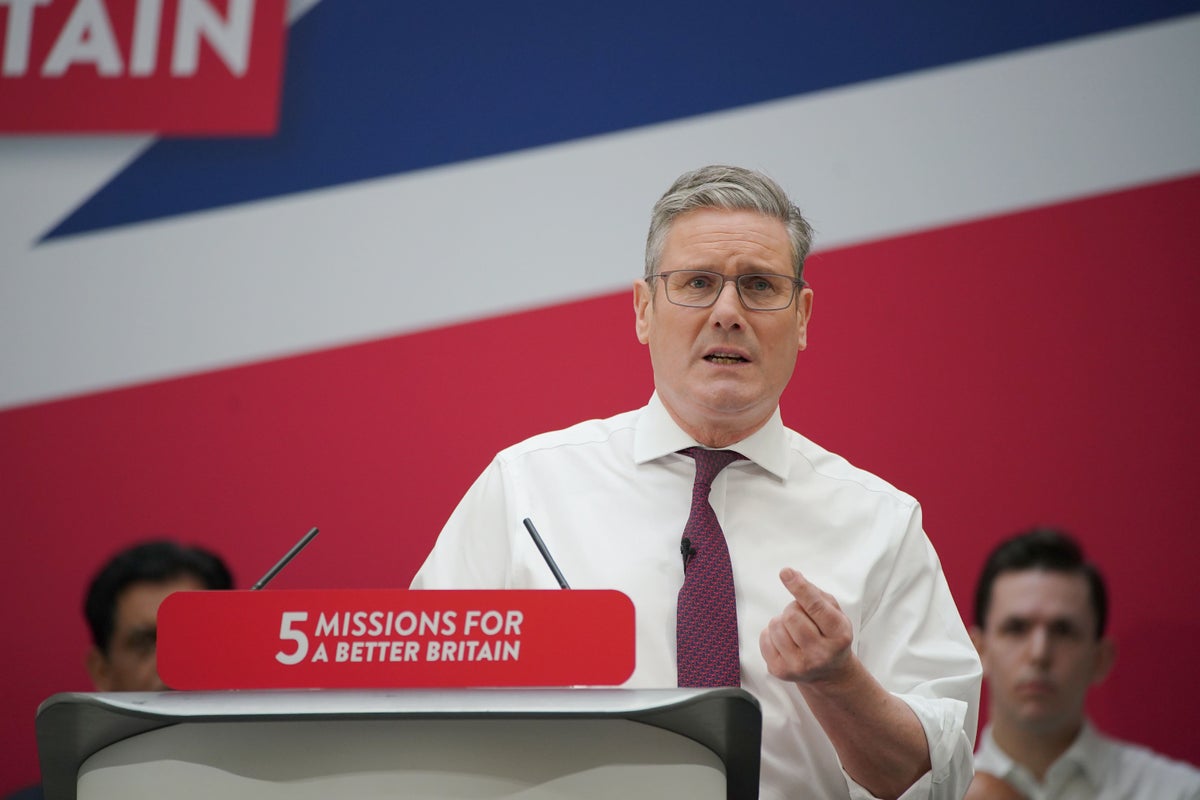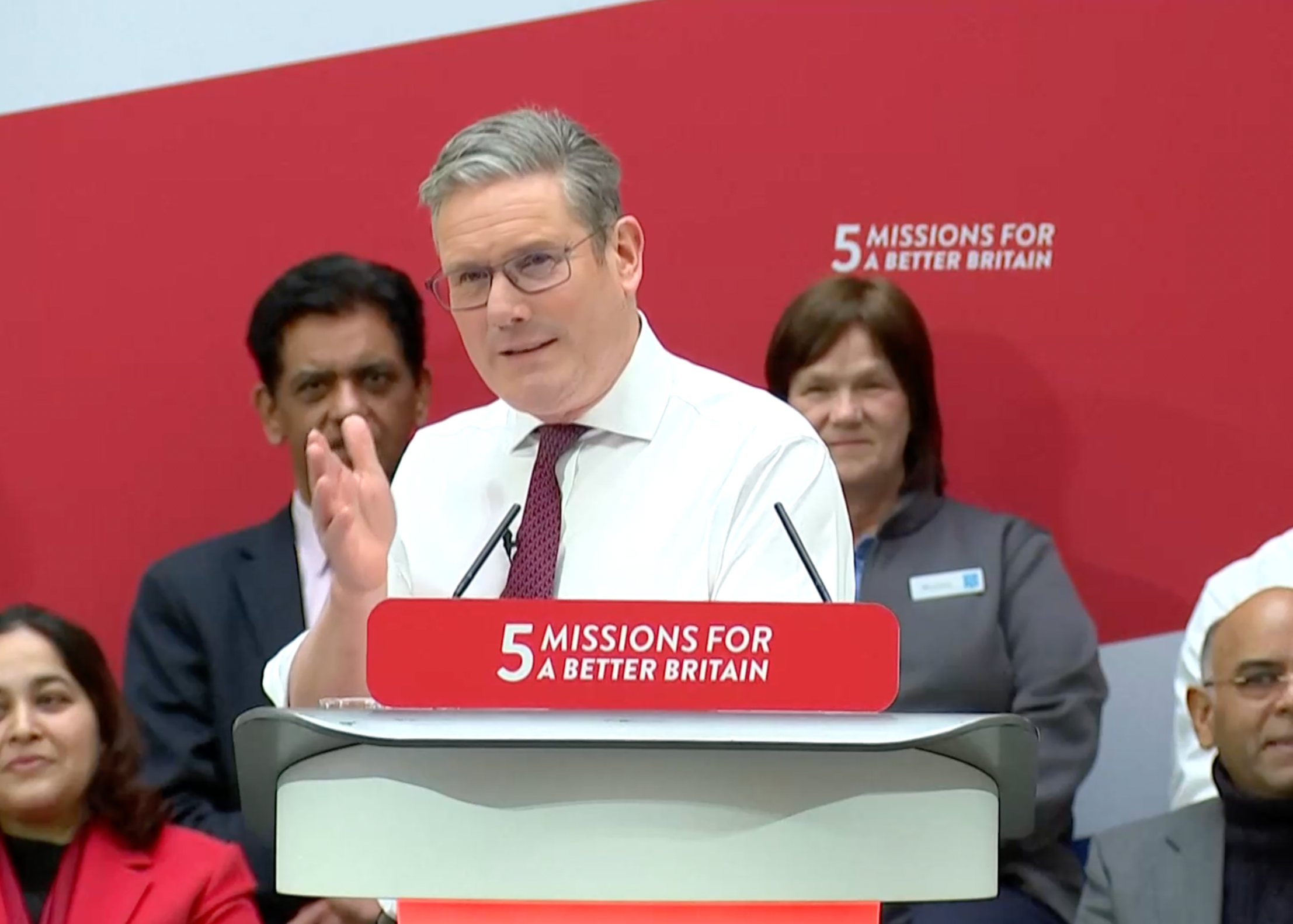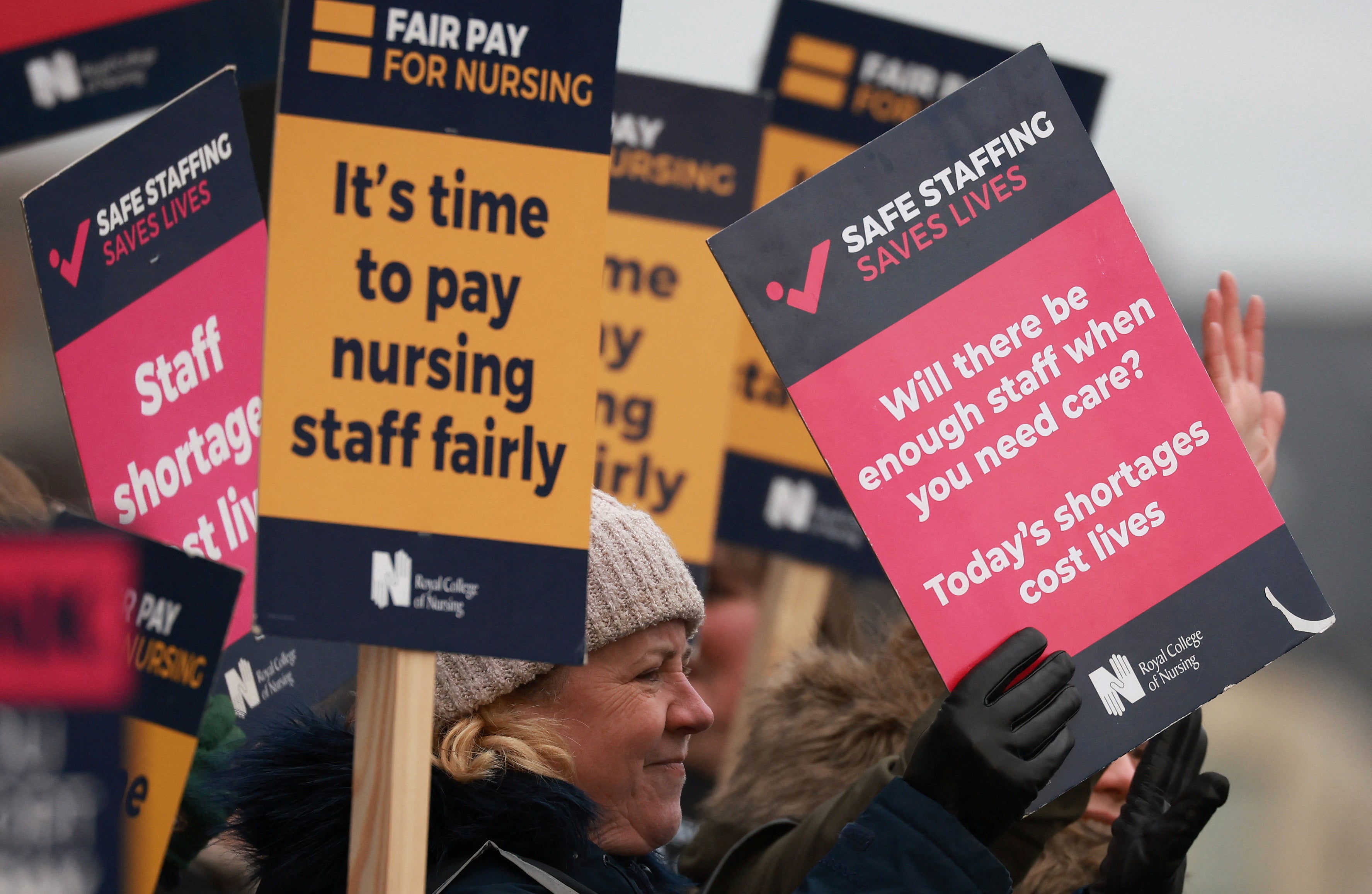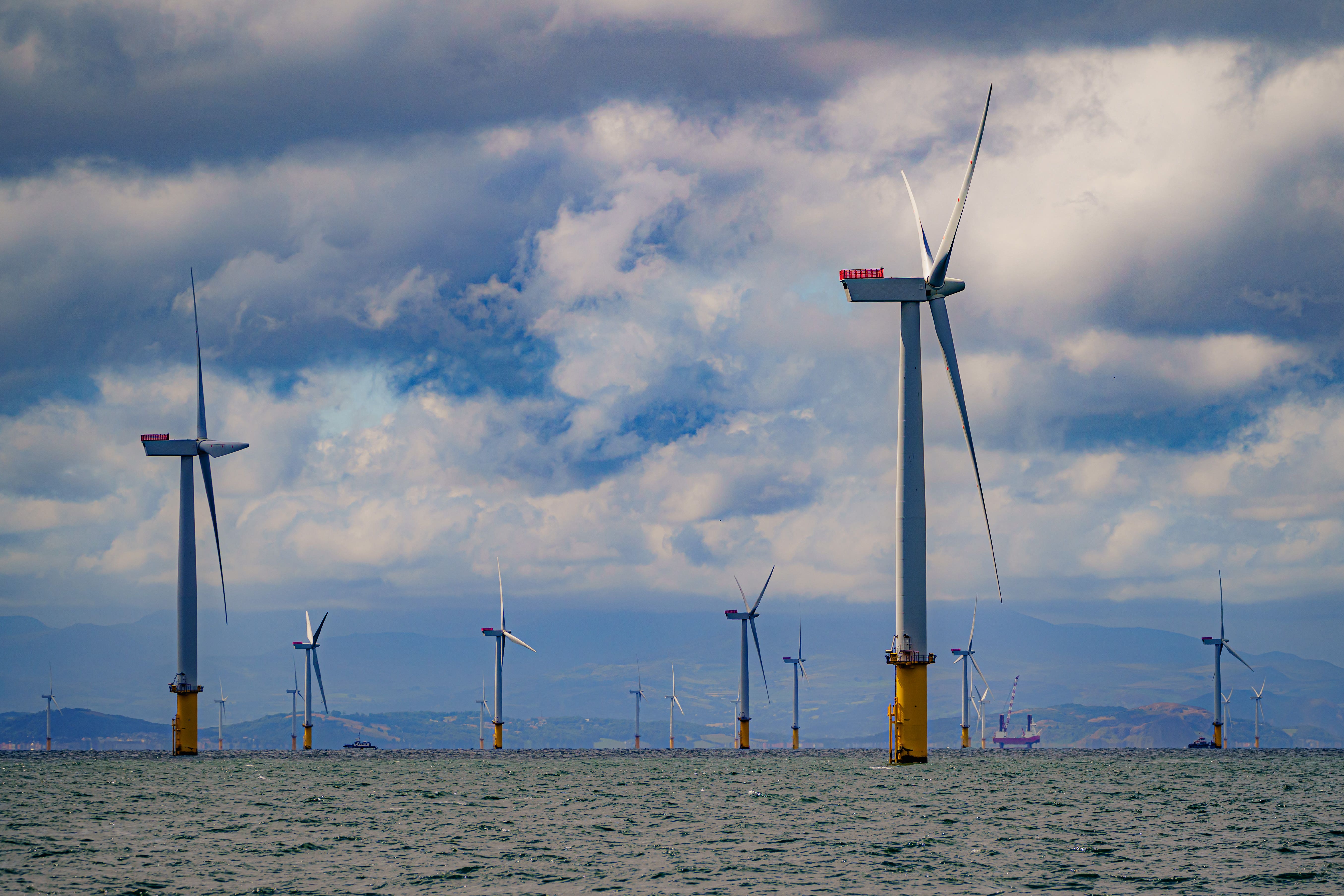
Labour leader Keir Starmer delivered a set-piece speech in which he set out his party’s plans for government should it win the next general election.
Sir Keir said his blueprint for running the country had five main planks that he described as “long-term” “national missions”.
These missions, he said, would be essential to fixing the “fundamental” problems facing Britain and give the UK the confidence to move forward as a country.
They include growing the economy, improving the NHS, tackling climate change and crime, as well as driving up standards in education.
Sir Keir’s speech, delivered in Manchester, focused on the economy and he is expected to set out more details about the other four in the months ahead.
The Economy
After a slight bounce coming out of Covid pandemic lockdowns, the IMF said last month that the UK was the only major industrialised nation forecast to see its economy shrink in 2023.
Growing the economy sufficiently has been a problem for the UK over the past decade and remains a riddle that successive prime ministers have tried and failed to solve.
Sir Keir said he wanted to ensure the UK has the highest “sustained” growth in the G7 group of developed nations.
He argued it was vital to fix the “fundamentals” in order to restore “pride and purpose” and unleash the “great potential our country has”.
In his speech, Sir Keir said that economic growth is the “oxygen for our ambitions” that would improve living standards and provide more money for public services.

In order to achieve this growth, Sir Keir said he would reform apprenticeships, modernise the childcare system and deliver a “new deal” for working people that will “make work pay”
“On embracing technology, innovation, science, we can say the first steps are a reformed planning system, a more powerful British Business Bank that can support start-ups to grow and scale and a credible industrial strategy, that gets everyone round the table - removes barriers to investment” he added.
Critics accused Sir Keir of not setting out more specific details of how he planned to grow the economy.
NHS
Problems within the NHS have been well documented in recent months, with patients facing record waits for treatment and staff going on strikes in an ongoing row over pay, conditions and staff shortages.
Sir Keir said any future Labour government would seek to make sure that the NHS is “fit for the future.” He said the health service had become a “classic example” of how “nothing seems to be working” in the UK.
“We have a winter crisis in the NHS every year,” he said. “We just about fix it, get through to the summer and then go back into the next year’s winter crisis.”
He added: “We can’t just go on every year doing the same thing. We need something which is longer term.”
The Labour leader said he would reform health and care services to “speed up treatment, harness life sciences and technology, reduce preventable illnesses and cut health inequalities.”
There were no further details on what shape the reforms would take.

Crime
Echoing the pledge of former Labour leader and prime minister Tony Blair, Sir Keir said he would get “tough on crime, tough on the causes of crime” to “make Britain’s streets safer”.
To do this, he said, Labour would reform the police and criminal justice system, preventing crime early, tackling violence against women and girls and stopping criminals escaping without punishment. He did not elaborate on what these reforms would look like.
In an interview earlier on Thursday, Sir Keir said he would try to make government more joined-up, giving an example of how the prosecution and education services could work together to tackle crime.
“I ran the prosecution service for five years,” Sir Keir added. “I know that, among the problems I had, was that it was in a silo. If you want to reduce crime, you have to get to grips with your education system, you have to recognise the mental health element of it, the health element of it.”

Energy and climate change
The UK’s ability to produce its own energy to power homes and businesses has come under sharp focus amid Vladimir Putin’s illegal war in Ukraine.
The conflict sent the price of gas and electricity soaring, with the cost passed on to consumers by energy companies and then subsidized by the government.
Sir Keir, at his party conference in September, said Labour would set up a new publicly-owned company - Great British Energy - to harness green energy.
And in his speech earlier he said his government would aim to make the UK a “clean energy superpower”.
He reiterated his target of getting “zero-carbon British electricity by 2030” that would allow us to “accelerate to net zero”.

“Make no mistake – this goal would turn Britain into a clean energy superpower,” he said.
“It puts us ahead of any major economy in the world. That’s the sharp intake of breath.”
The government said it expects the measures detailed in its Energy Security Strategy to result in an electricity generation mix that is 95 per cent low-carbon by 2030, having already pledged to ensure a 100 per cent low-carbon mix by 2035.
Sir Keir also said Labour would insulate 19 million homes and train people to be “heat pump fitters, builders, engineers, electricians.”
Education
Education was the least detailed part of Mr Starmer’s plan. He said his mission in this area is to “break down the barriers to opportunity at every stage, for every child, by reforming childcare, reforming education, raising standards everywhere and preparing young people for work and life.”







